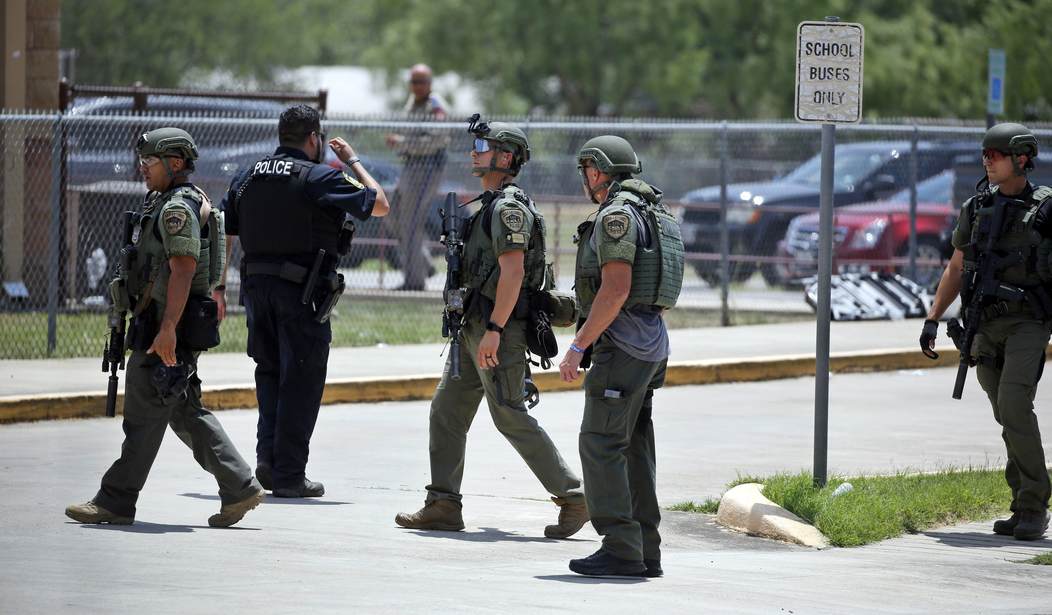There is no one who is going to defend school shootings. Why would they? They’re awful on literally ever level, and even one such event happening represents a problem that we need to figure out a way to address.
In the wake of Parkland, CNN held what it called a “townhall.” It was more accurately an opportunity to abuse anyone who didn’t vehemently want gun control that instant.
Yet over at The American Thinker, writer C. Roberts has an interesting perspective on the issue that needs to be considered.
Legitimizing the idea that mass shootings are an epidemic in America, Deutch referred to 3,300 high school teachers and/or students and families as “survivors” — consistent with methodologies used by news outlets like the Washington Post (WaPo) that essentially equate victims of gun violence with the number of students enrolled where a shooting occurred. This enables the WaPo to report that “320k students have experienced gun violence at schools since Columbine” when the actual number is closer to 3.6K. It would be like claiming that all Americans are survivors of the Revolutionary War when only ten percent were involved. To redefine “survivor” in this way would require that most of history be rewritten. All in all, CNN’s town hall showcased gut-wrenching anguish felt by victims’ family, friends, teachers, etc. that likely moved many to tears. But do tears alone belong in America’s gun control debate?
Not once in two hours was the number of mass shootings (133 in 39 years, 3.5/yr) or students killed (1K, 28/yr) or injured (2.6K, 68/yr) relative to the number of children in America, 0.004%, mentioned. Nor were the odds of being shot in a mass shooting (1 in 11K), 1,571 times less than dying from cancer (1 in 7), presented. No one stated how often so-called “assault rifles” (10% of the time) are used or how many shootings are stopped by armed civilians (49% in 2021). Nor were gun-free zones, Israeli policy, or the effects of drug use and nihilistic ideologies (that deny God’s existence) on the mental state of shooters discussed. Perhaps most remarkably, no one mentioned that all public policy is legally constrained by the U.S. Constitution.
Those, for me, are the money paragraphs.
See, that’s a perspective that needs to at least be acknowledged, but it’s not. If anti-gunners would at least admit this, it would be easier to take them seriously. I wouldn’t be swayed by anything, mind you, but as it is, it’s clear they’re totally invested in demonizing gun ownership and are willing to pretend that if we just do this one thing, everything will be better.
They’ll pretend it, but it’s unlikely they actually believe that.
Take the frequency of so-called assault rifles being used in school shootings, for example.
When a shooting takes place–or even while it’s still ongoing–the usual suspects take to the media and start blaming gun policy for the incident. They start extolling the virtues of things like assault weapon bans, saying that if we had such a law, this wouldn’t be happening.
Only, we find out later that the killer used a handgun or something other than the evil AR-15.
Then, of course, no one is held accountable for being so horribly wrong.
The truth is, school shootings are poorly understood, as Roberts implies above. We don’t have a discussion about all the other factors that might be contributing to the phenomenon, in part because we’re too busy having to argue about just how often these incidents even happen. It’s ridiculous.
School shootings happen, but they’re nowhere near as common as the anti-gun activists or media (but I repeat myself) claim. The impact of these tragedies is likewise drastically overstated as well.
If they’ll blow these simple, easy-to-understand facts so drastically out of proportion, then why should anyone take them at their word on anything else?








Join the conversation as a VIP Member